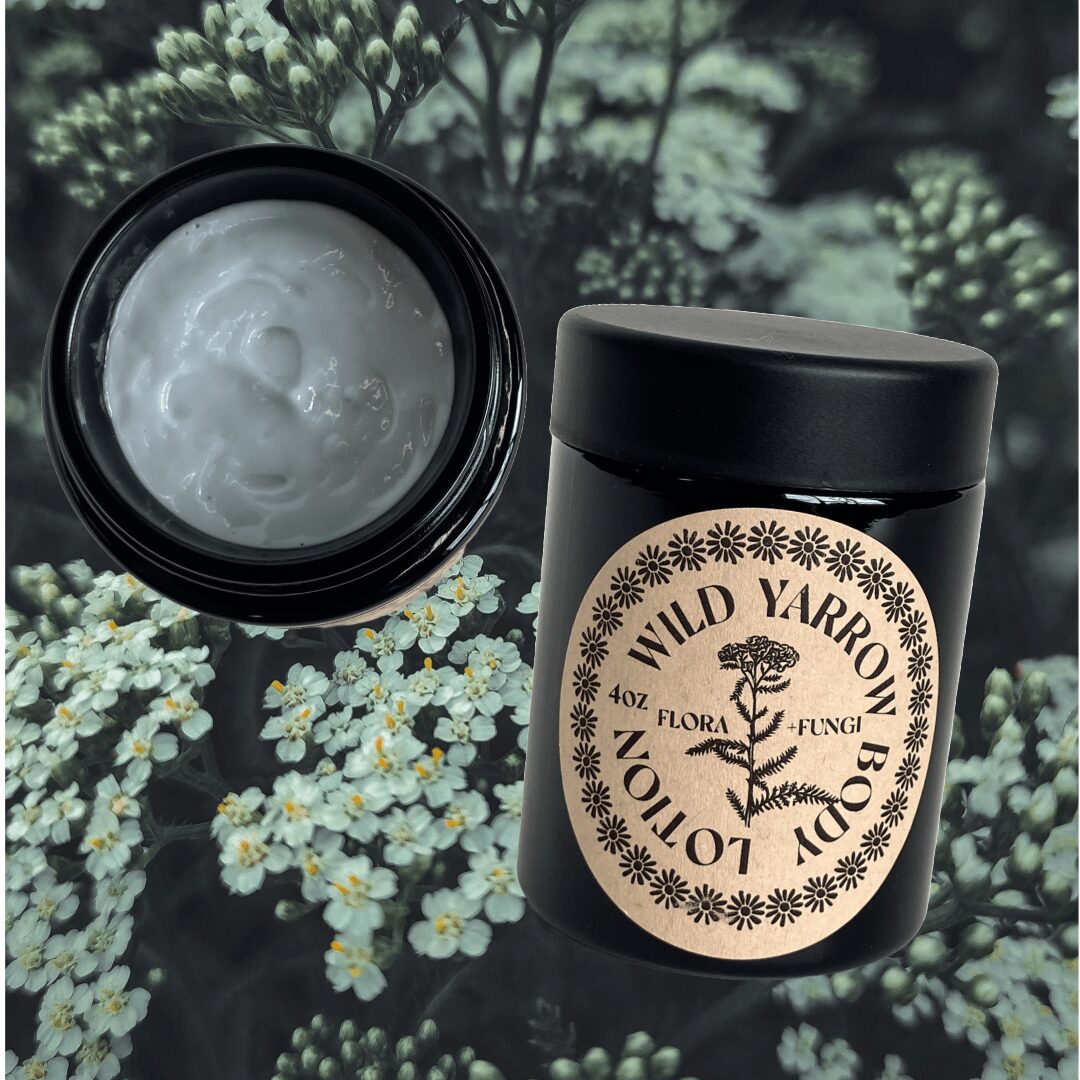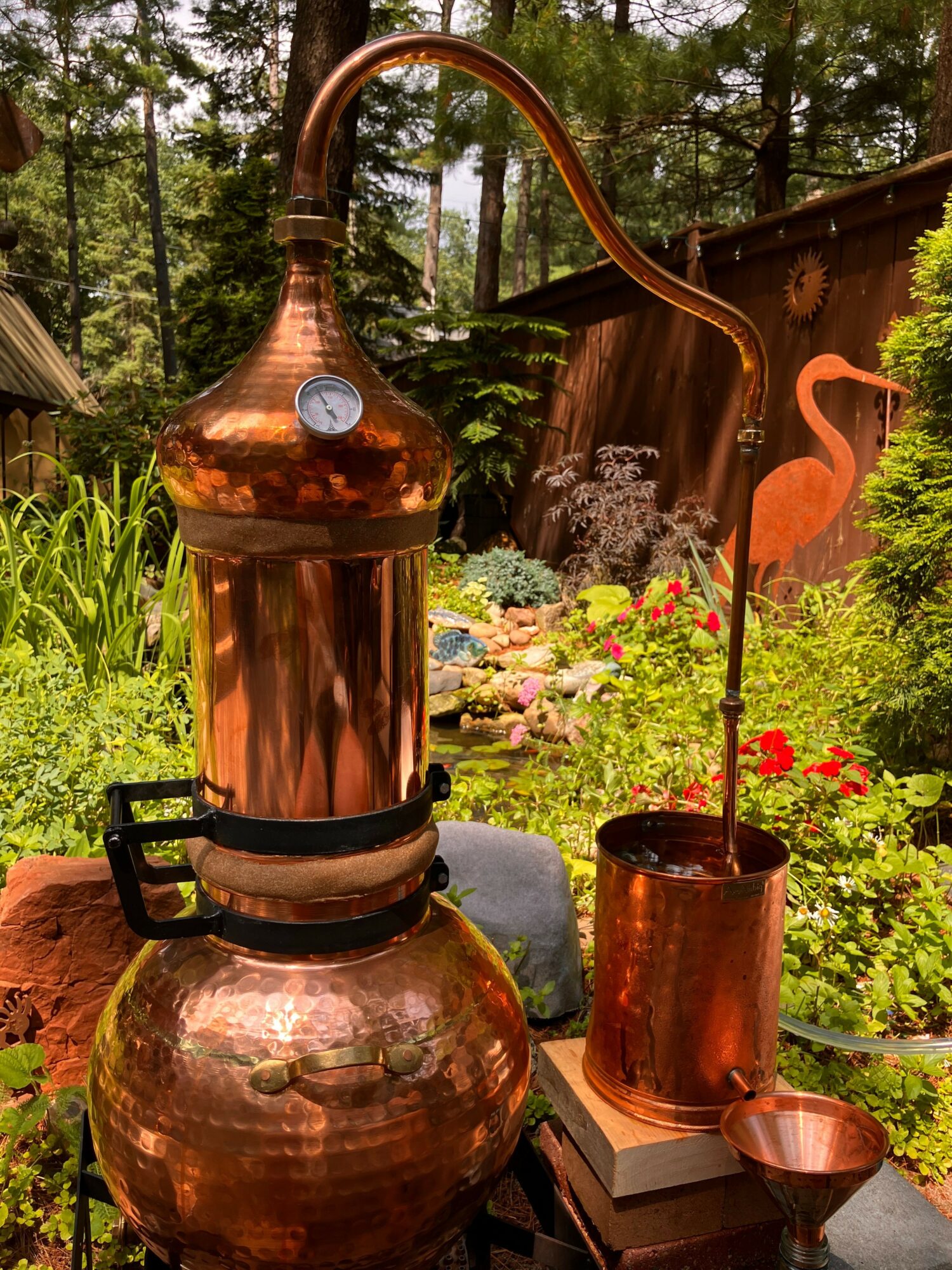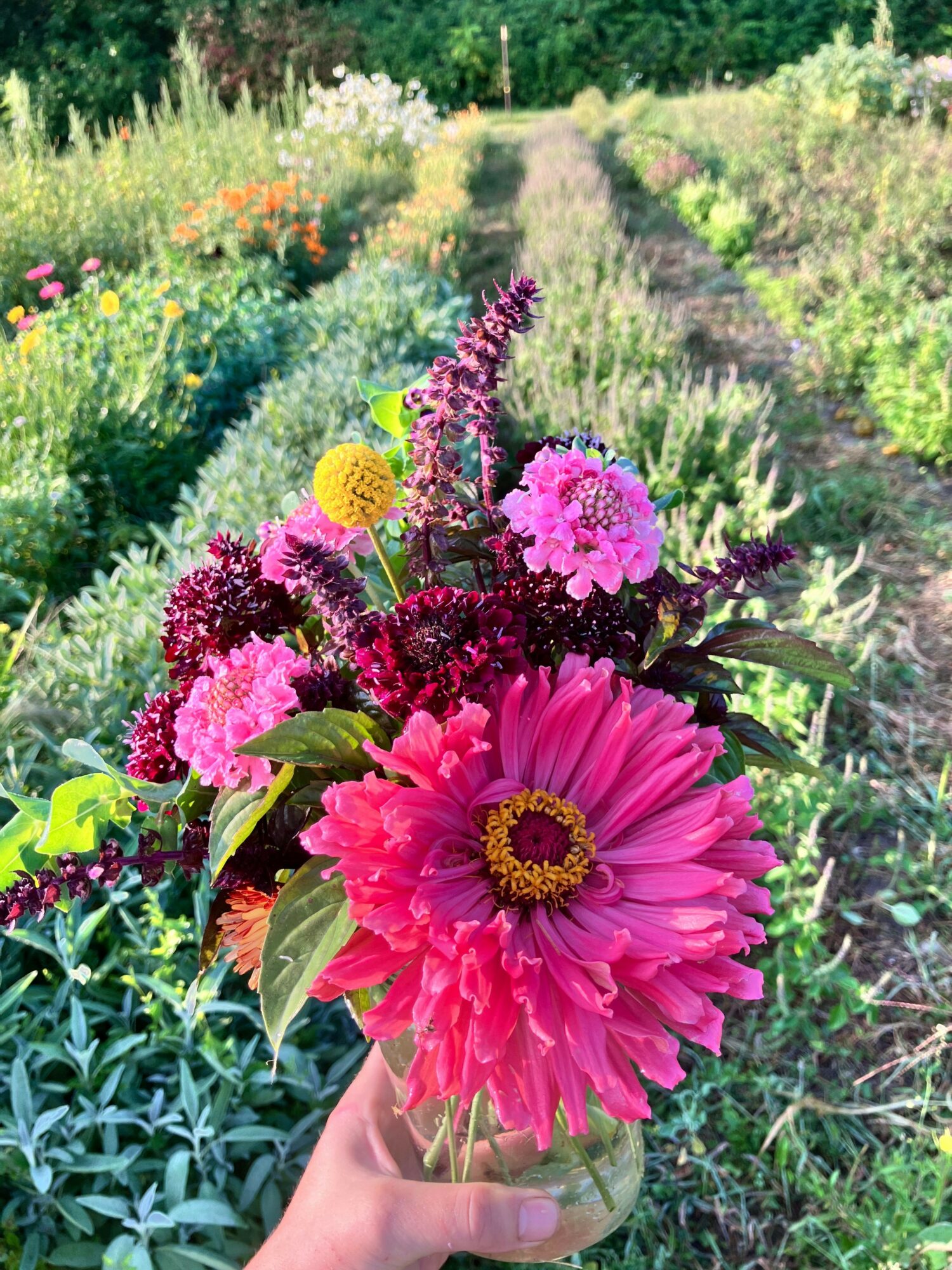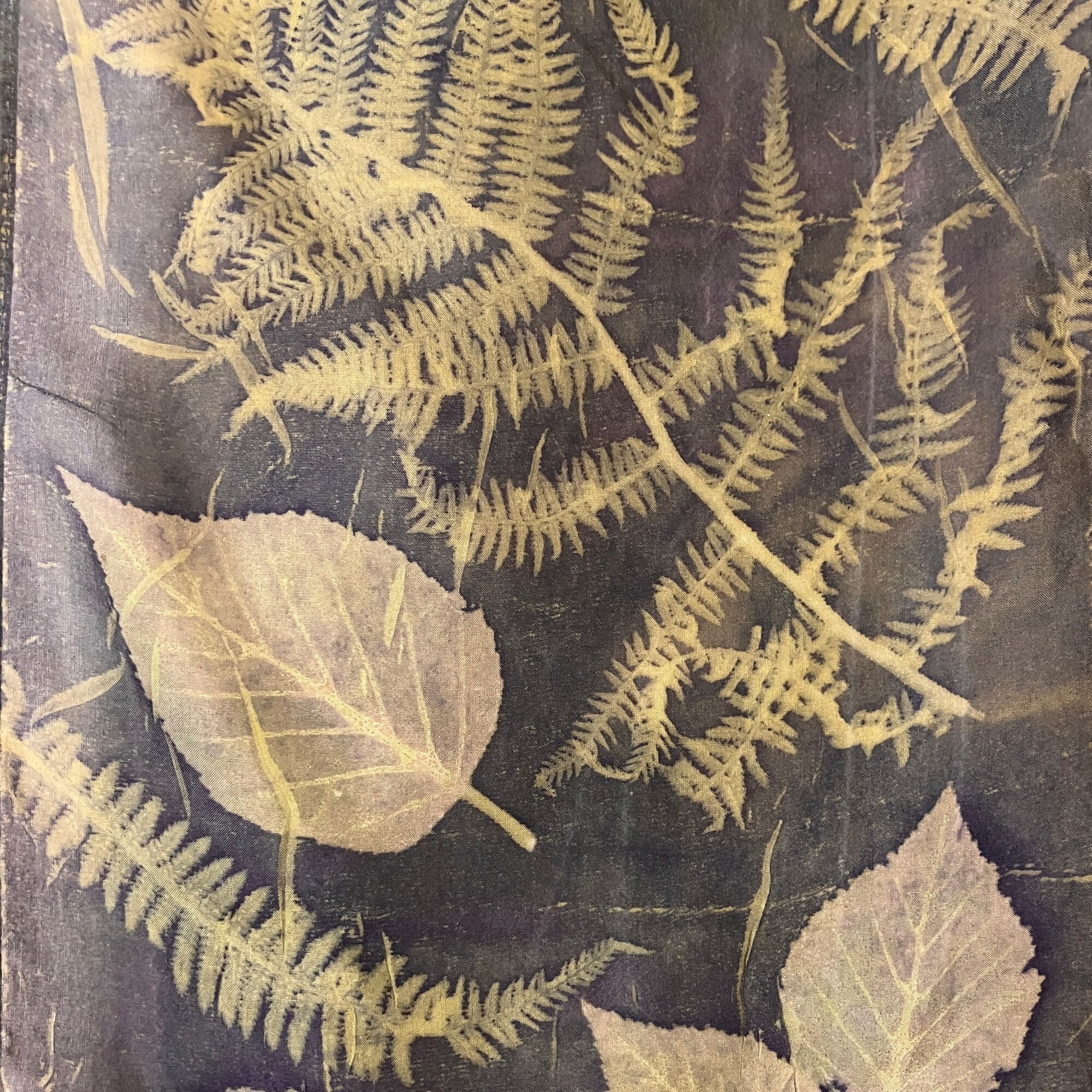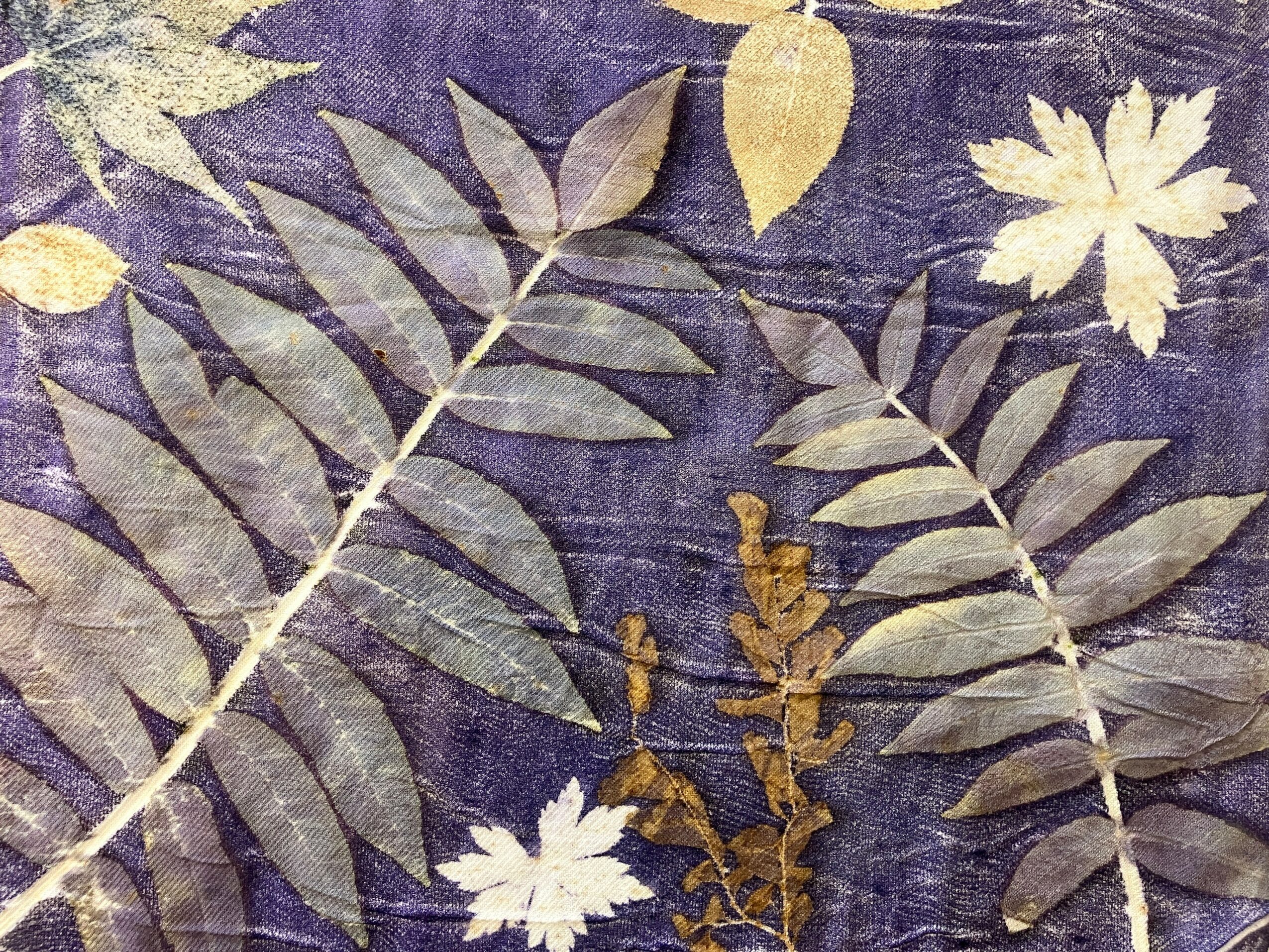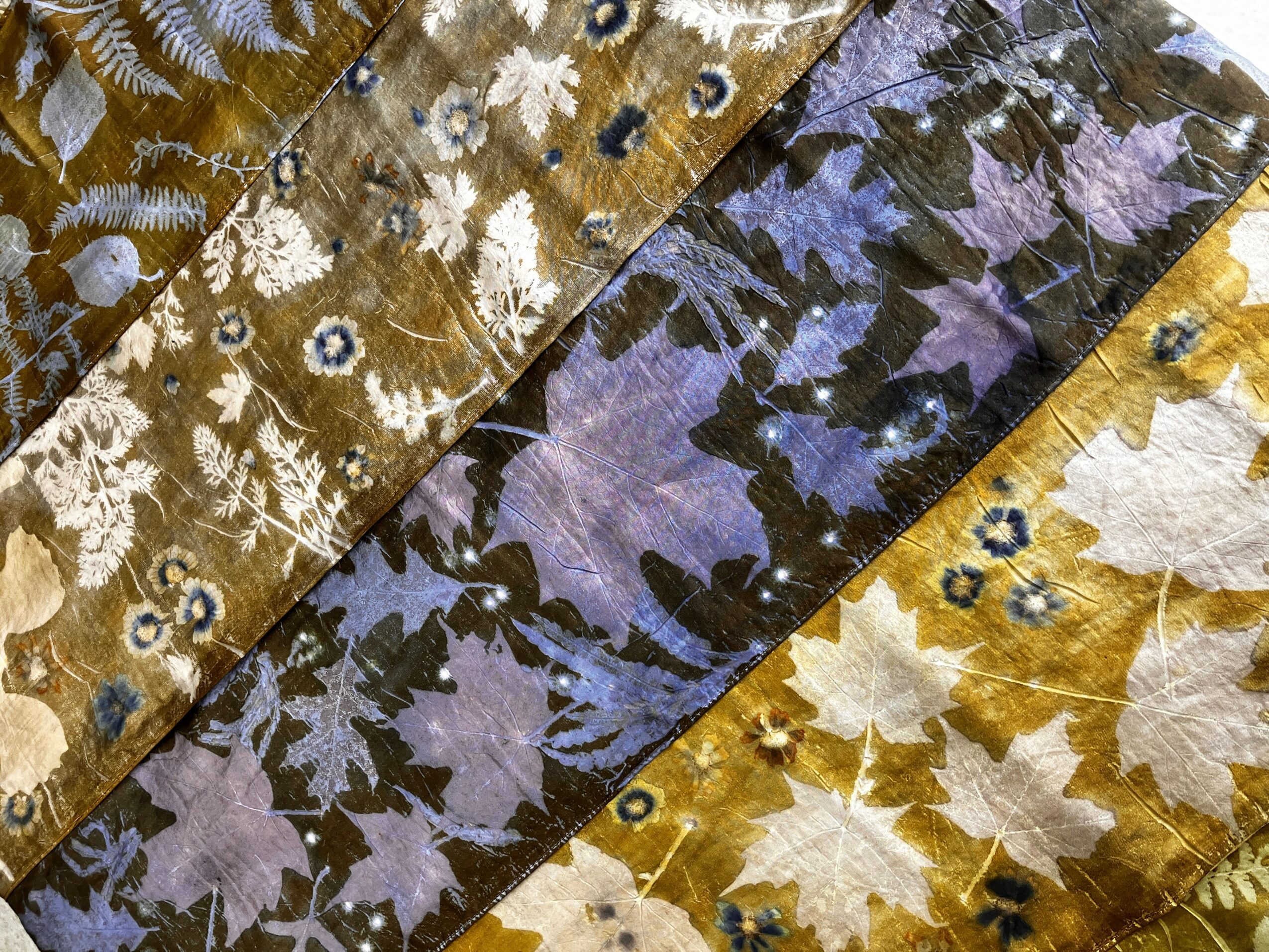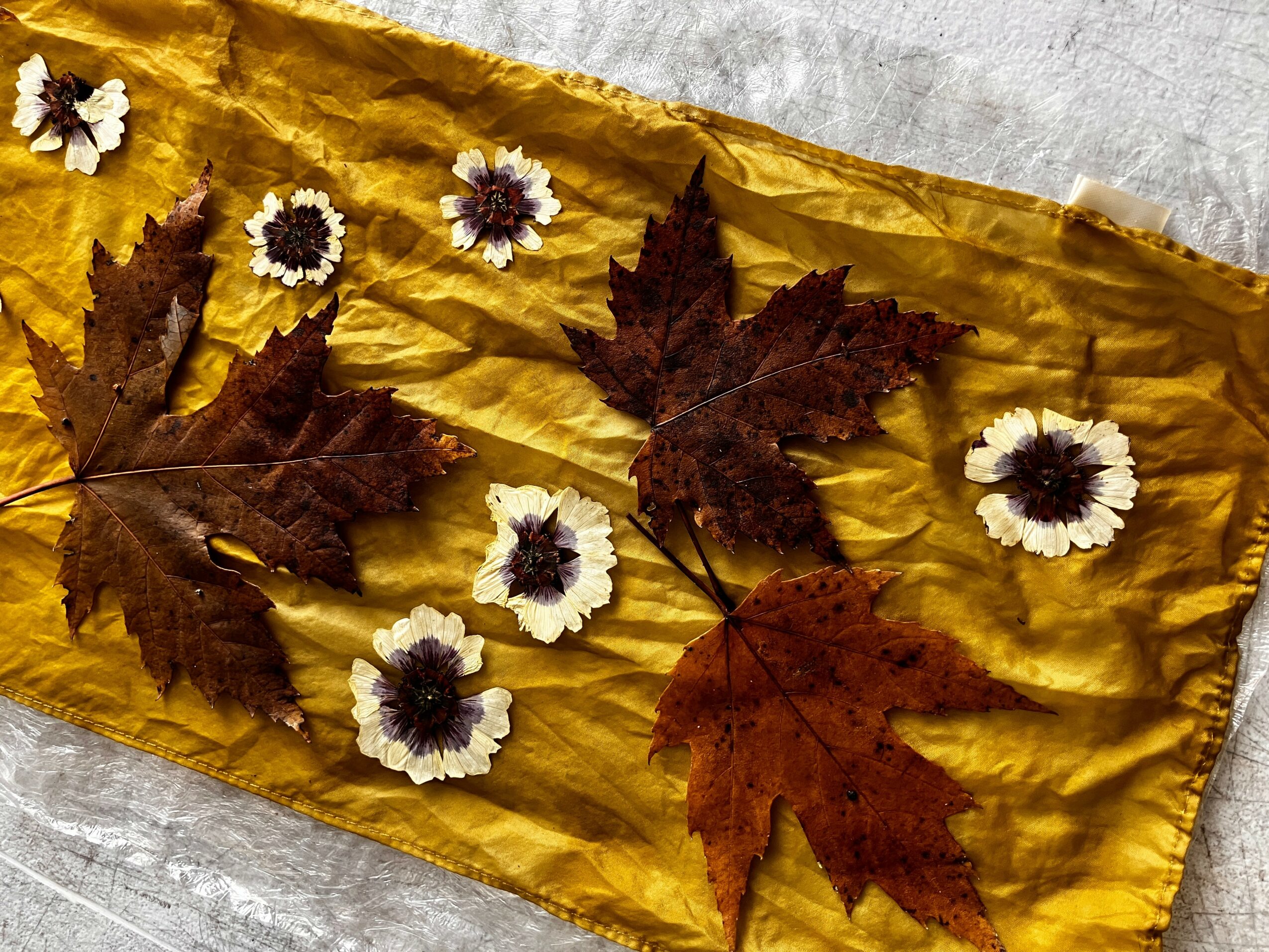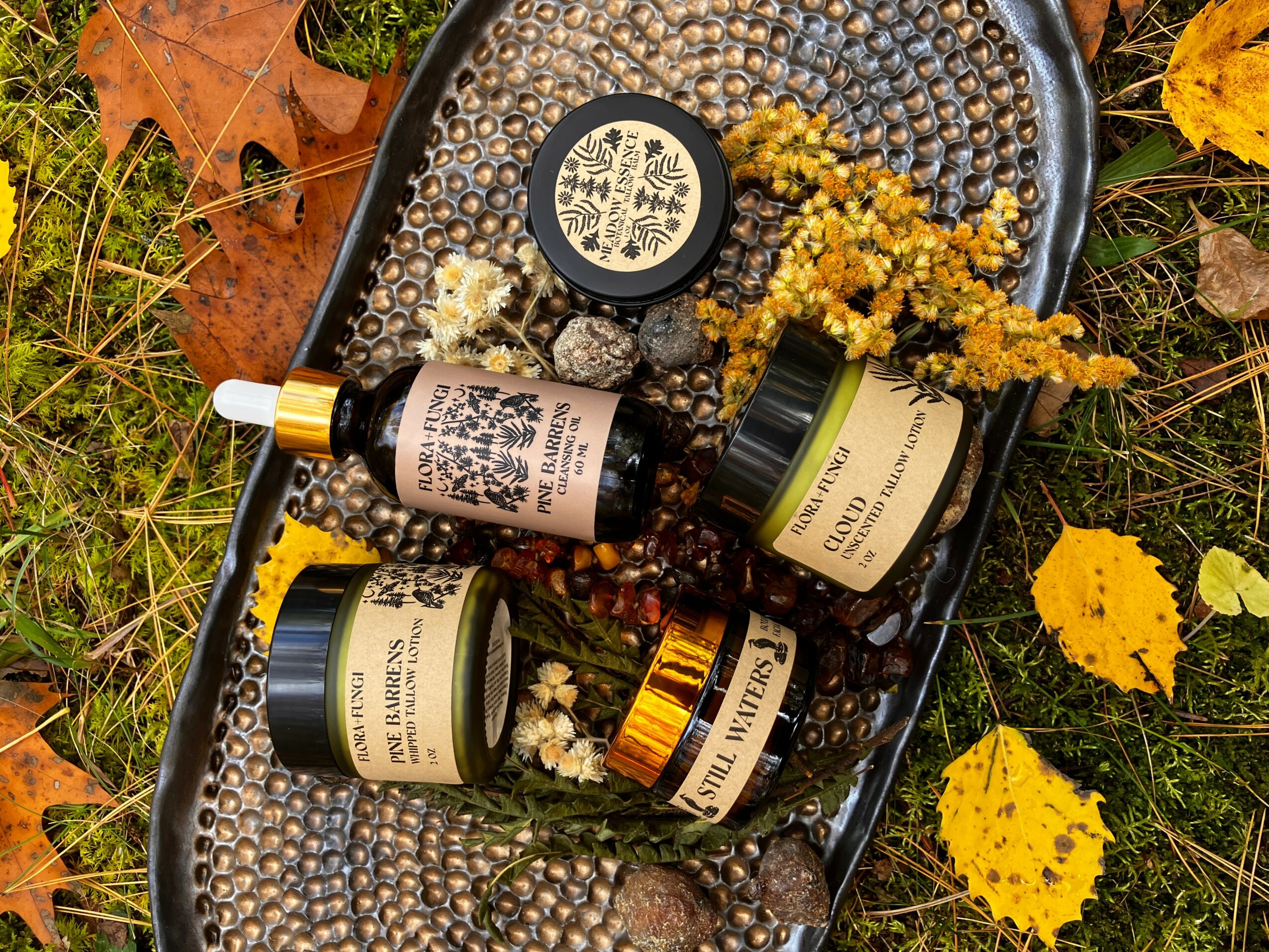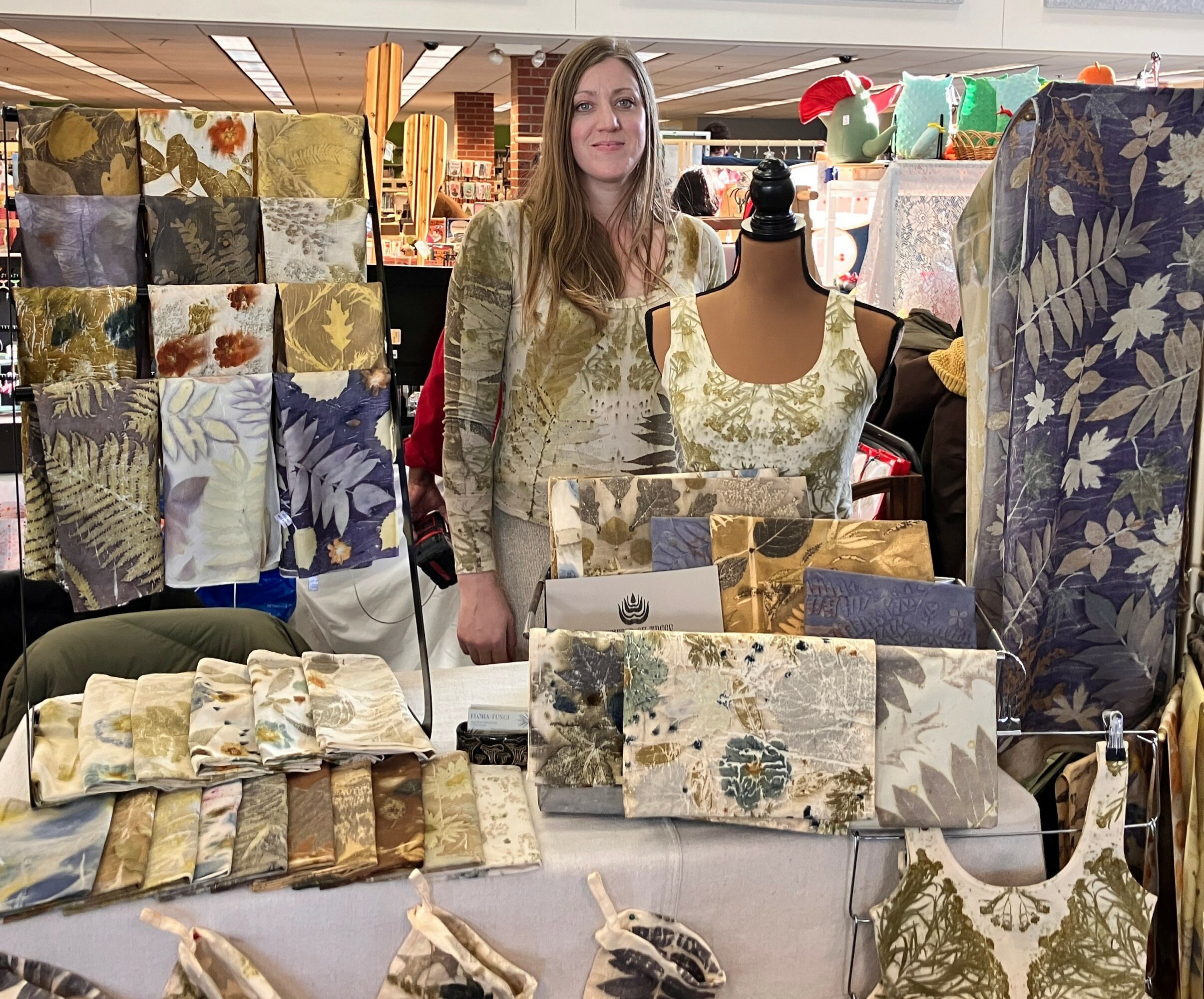

Today we’d like to introduce you to Amanda Derocher.
Hi Amanda, so excited to have you with us today. What can you tell us about your story?
Ever since I can remember, I’ve been captivated by plants.
Growing up in a small town in northeast Michigan on the edge of Lake Huron, plants were the dominant feature of my world. Far from the concrete cityscapes of the urban jungle, pine and spruce trees towered like skyscrapers, rising from green cities of vegetation sprawling across the land. Wintergreen blanketed the forest floor surrounding my parents’ house. Daily nature walks often ended with my pockets full of wintergreen, pine needles, and berries for tea and snacks. I never had to welcome plants into my life—they were there when I arrived.
When I moved back to Michigan several years ago, my plan was to begin graduate studies in Linguistics. But as I settled back into the great wilds of northeast Michigan, the plant world had other plans for me. The plants soon took over my life.
For much of my life, I’ve studied and worked with medicinal and aromatic plants—gardening, foraging, and making my own natural skincare and herbal preparations. I didn’t wake up one day and decide to start an herbal products business; the plants had been guiding me toward that path for years, whether I realized it or not. Herbal solutions had consistently been more effective for my ailments than pharmaceutical options, and I decided it was time to return to my roots and build a life around my love for the plant world.
I founded FLORA+FUNGI in 2018. I specialize in distilling hydrosols and essential oils and using them to create truly natural skincare products made with wild-harvested and garden-grown botanicals. When I started my business, I went back to school for programs in Cosmetic Science and Formulation to ensure my products were safe, effective, and shelf-stable using only natural preservatives. My skincare line starts with a seed—it’s more than a product. It’s an alchemy of earth, plants, water, and passion. It’s an ode to the land that holds us: the Great Lakes Bioregion and the Laurentian Mixed Forest Province, whose forests and meadows I walk and worship.
As my business grew, so did my garden. Several years in, I now grow hundreds of plants each season on my micro herb farm (less than an acre). After a couple of seasons with surplus harvests, I licensed my production space with MDARD and expanded into culinary products using my excess herbs. Some of these products are now on the shelves of local shops in my region and will be available online by mid-May 2025.
It feels deeply profound to cultivate a career rooted in the earth and the rhythms of nature—especially in an era when millions of people live in concrete jungles, disconnected from the plant world that has supported humanity for millennia. Each year, I start hundreds of seeds, grow thousands of flowers, and plan my days according to the sun and weather.
Would you say it’s been a smooth road, and if not what are some of the biggest challenges you’ve faced along the way?
My business is still a one-person show, and my biggest challenge is overestimating what I can accomplish in a day, week, or month—then having to accept the reality of being just one human. Learning not to beat myself up over unfinished to-do lists has been a major shift. I’m also a workaholic, so balancing work and personal life is a constant challenge, especially when my mind is always running through the many tasks I need to manage. But I have a rule: summer is sacred. I’ll drop my work agenda any summer day if the opportunity for kayaking or another nature adventure comes up.
I’ve spent the last several years doing farmers markets and craft shows to grow my business, and I’ve definitely had years where I overbooked myself and burned out. Thankfully, the wholesale side of my business has grown enough that I no longer need to vend in person regularly—though those events were invaluable for growth.
Marketing has been a challenge—I had no prior business experience, and my products are unique with unusual ingredients. I’ve learned that educating people about the plants I use is key to selling them. People love connecting with plants. Often, someone will smell a product and tell me it reminds them of visiting their family’s cabin up north as a child. Beyond just selling products, I offer botanical nostalgia—inviting people to reconnect with their fondest memories of the natural world and reminding them that it’s still there, waiting.
This business has also transformed me socially. As a lifelong introvert, vending at markets and craft shows—talking all day to strangers—has definitely helped me grow.
As you know, we’re big fans of you and your work. For our readers who might not be as familiar what can you tell them about what you do?
At FLORA+FUNGI, I specialize in working with regional plants and distilling hydrosols and essential oils from them to create high-quality base ingredients for my cosmetic line. I use a traditional alembic still and currently distill over 50 gallons of hydrosols a year. Hydrosol-based serums and lotions are my specialty. I’m inspired by the natural world around me and often formulate products around the ecosystems they reflect. For example, Lauma, a facial lotion I produce, is made with Eastern Hemlock and Balsam Fir hydrosols, balsam fir resin, and essential oils of cedar and black spruce—ingredients native to the conifer swamp ecosystems in my region.
Creating, not sourcing, is what sets me apart. I strive to produce as many of my product’s base ingredients as possible instead of relying on outside suppliers. This gives me greater control over quality and assurance that the botanicals used were grown organically—by me. Greenwashing is rampant, and many so-called “natural” products are mass-produced with questionable ingredients. By growing, distilling, and extracting my own materials, I know where everything comes from and can feel proud putting these products into the world.
My plant obsession intertwines with my creative instincts. After over a decade of exploring plant-based dyes, I began growing a dye garden—and slowly, another business emerged: Daughter of Trees. This is my fine art venture. Using the magic of ecoprinting, I harness the beauty of real leaves and flowers to create one-of-a-kind textiles that celebrate the raw elegance of the natural world. Each piece is a fusion of art and sustainability, with botanical imprints blooming on silk, wool, and other natural fibers—turning garments into living, breathing stories of the earth. With an alchemist’s touch and the help of organic chemistry, I coax rich, organic hues and intricate details from plants, creating heirloom-quality wearable art.
One of my favorite things about being an artist, creative, and mad plant scientist is never knowing what I’ll create next. If I could go back ten years and show my younger self everything I’ve done since, I wouldn’t believe it. It’s exciting to think how my creative potential might manifest in the future. This is especially true with my textile work. Textile art has been a passion since I was a teenager working at an art supply store, and years of practice have led me to create pieces I once couldn’t imagine.
Can you talk to us about how you think about risk?
Starting my business was a big risk- moving back to my hometown of barely 500 residents and trying to start a business was a struggle in a place where there is little economic opportunity or jobs. I was terrified it was going to fail and I was going to have to go back to working for my dad’s construction company. It still feels risky sometimes, as my income is through online sales and now wholesale (as I have 40+ retail partners nationwide) that if the internet disappeared tomorrow I would be lost.
Contact Info:
- Website: https://www.florafungiapothecary.com
- Instagram: https://www.instagram.com/daughter.of.trees
